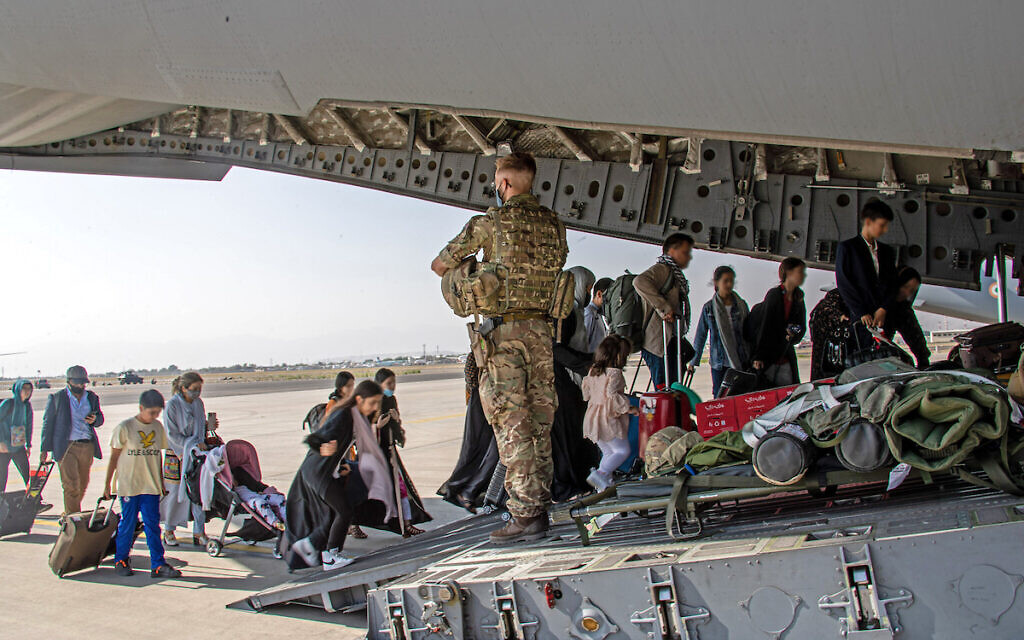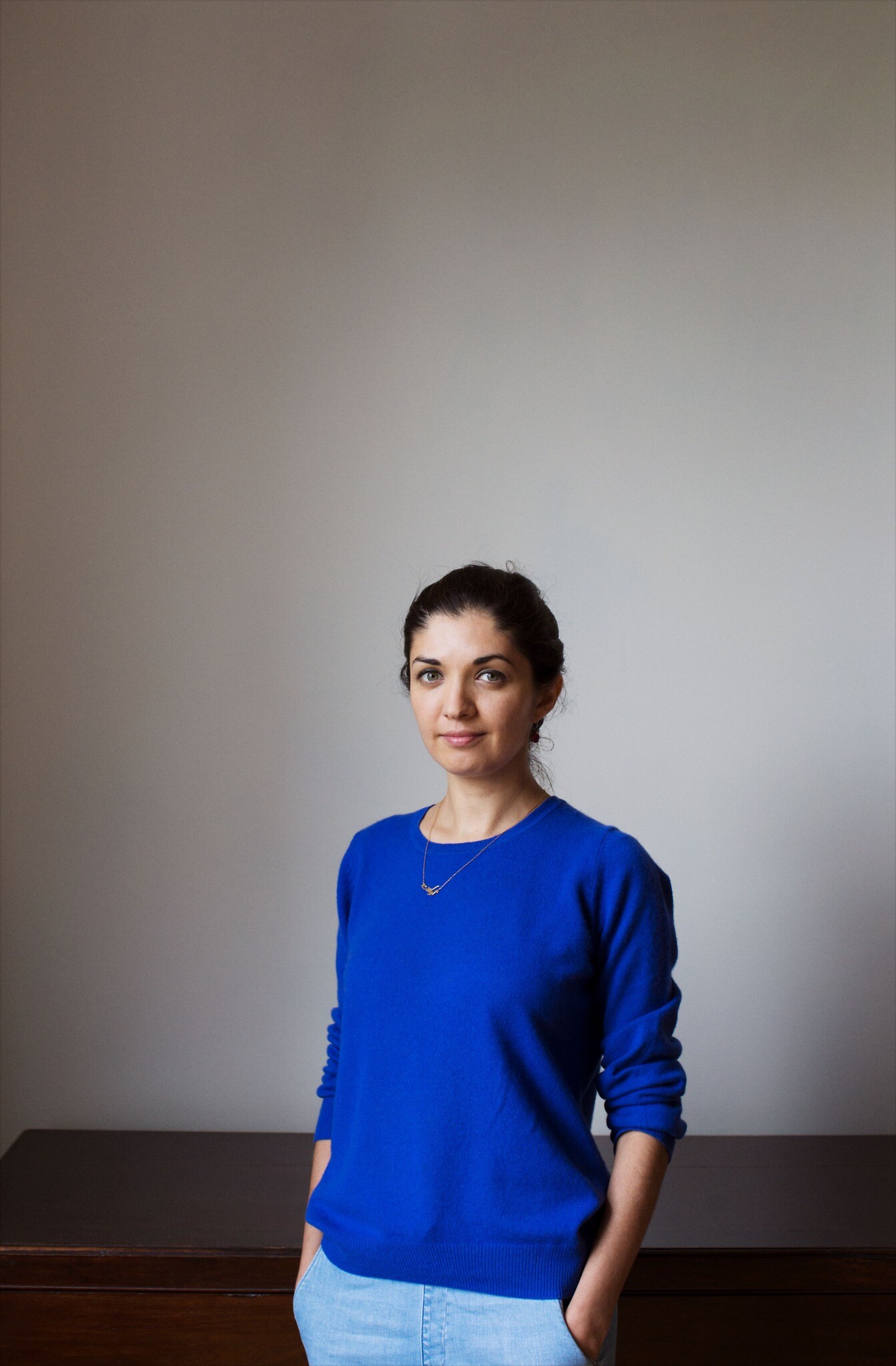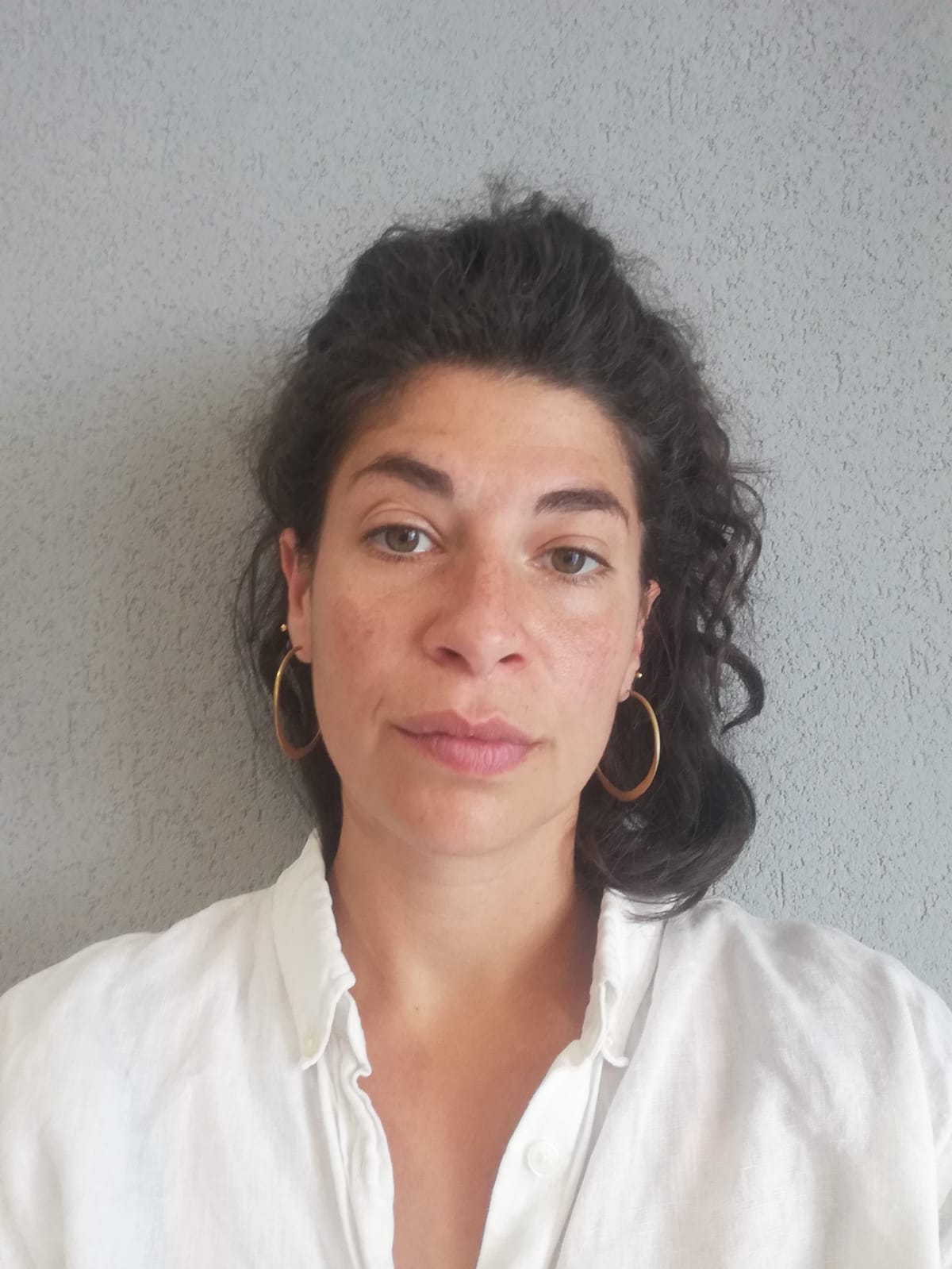OPINION: Will parents send children alone?
Zarlasht Halaimzai and Gabriella Brent of the Refugee Trauma Initiative ask the Jewish community to stand with those fleeing for their lives

Over the past week the world has watched as desperate Afghans attempt to flee Afghanistan via the only route out – Kabul airport. Following the Taliban takeover of Afghanistan, Afghan women, human rights defenders, journalists and many more have been at immediate risk. Watching the panic and fear has been deeply distressing for many including ourselves.
The events unfolding brought back memories for both our families. We both have refugee backgrounds. Zarlasht is Afghan and arrived in the UK at the age of 15 with her family. Gabriella comes from a family of Jewish refugees. Her grandmother arrived in the UK on the Kindertransport. Some were not so lucky to make it out. Our families know how it feels to desperately try to get your family to safety, of closing doors, and of too few outstretched hands of help.
Over the past week we’ve heard stories from our friends and family in hiding, scared of what will happen if the Taliban finds them. Others have spent days desperately trying to reach the airport for a chance to reach safety. One friend said, “it feels like we were having a dream,” referring to the situation now as “torture”. These are people who believed in and fought for democracy and women’s rights, human lives and dreams that have been shattered suddenly.
Get The Jewish News Daily Edition by email and never miss our top stories Free Sign Up
As the events of the past week unfolded in front of our eyes we couldn’t help but think about our own histories. For Zarlasht as an Afghan and Gabriella as the descendent of children of the Kindertransport. We were seeing, live, the desperate decisions that our families also had to make years ago. What do you take you with you when you flee and what do you leave behind? How and to whom do you say goodbye? Can you even say goodbye? Do you send your children alone in the hope you’ll be able to join them later?
We met as part of our work at Refugee Trauma Initiative. At RTI we provide trauma-informed psychosocial support to refugees, to help people heal from experiences of trauma. Our work enables people to build resilience as they navigate the uncertain next steps of their lives. Humanitarian crises take huge tolls on people’s mental health. In fact, people living in conflict-affected areas are three times more likely than the general population to be affected by mental health issues. These issues don’t go away overnight and refugees and asylum seekers also experience high rates of depression, anxiety, and post-traumatic stress disorders. RTI use identity-informed approaches to psychosocial support to address the effects of intergenerational trauma – something our families know about all too well.
Our families histories have greatly informed the path we took in our lives. We stand for anti-racism and inclusivity and practice this in our activism, our work with RTI and conversations with friends and family. We hope one day arriving Afghan refugees will be able to return to Afghanistan, as we hope for other communities we support.
Jewish tradition places great importance on just treatment of refugees and the Jewish community has long stood behind those fleeing persecution. We know what happens when people look away and too often, we’ve also had to stand alone. That’s why we came together with Jewish News and The Jewish Council for Racial Equality (JCORE), on a coalition building campaign to support the safe passage of Afghans.
Time is running out for those at risk to be taken to safety and we’re terrified at what will happen when Afghanistan is no longer the top news item. We’re calling for humanitarian corridors immediately to save those at risk.
The UK has precedent in this. The Syria resettlement scheme, launched in 2014, welcomed 20,000 Syrians, in 1972 Ugandan Asians found refuge after being expelled by Idi Amin and of course the Kindertransport in the late 1930s provided refuge for many of the Jewish community’s grandparents. These initiatives only happened because of pressure from the public. The Jewish community in particular has played a huge role in securing the safe passage of vulnerable persons, for example the Dubs amendment in 2016.
At times like this, a collective voice is so important. That’s why we are asking the Jewish community to stand with Afghans at the time of suffering.
Events like what’s unfolding in Afghanistan can cause immense suffering, it has also built bridges of support between communities. We’re proud to stand together as Jewish-Afghan allies saying together: Afghans are welcome here.
About the authors:
Zarlasht Halaimzai is Co-Founder and CEO of the Refugee Trauma Initiative and a former refugee from Afghanistan. She arrived in the UK with her family at the age of 15.
Prior to founding RTI, Zarlasht advised INGOs on education and child wellbeing, to help refugees dealing with the emotional fallout of violence and displacement. In 2018, Zarlasht was selected as a Fellow of the inaugural class of Obama Fellows, a group of 20 global leaders in civic innovation.
Zarlasht is a frequent media commentator in the UK and US on issues related to refugees, trauma and displacement.
Gabriella Brent is Refugee Trauma Initiative’s Clinical Lead and Head of Programmes and is a transpersonal counsellor and psychotherapist.
Before working with RTI, Gabriella spent 15 years working across the UK in the NGO sector piloting and implementing more humane, trauma-informed, systemic models of care with children’s services, in the UK family and criminal justice court and prison systems and gender-based violence services.

Thank you for helping to make Jewish News the leading source of news and opinion for the UK Jewish community. Today we're asking for your invaluable help to continue putting our community first in everything we do.
For as little as £5 a month you can help sustain the vital work we do in celebrating and standing up for Jewish life in Britain.
Jewish News holds our community together and keeps us connected. Like a synagogue, it’s where people turn to feel part of something bigger. It also proudly shows the rest of Britain the vibrancy and rich culture of modern Jewish life.
You can make a quick and easy one-off or monthly contribution of £5, £10, £20 or any other sum you’re comfortable with.
100% of your donation will help us continue celebrating our community, in all its dynamic diversity...
Engaging
Being a community platform means so much more than producing a newspaper and website. One of our proudest roles is media partnering with our invaluable charities to amplify the outstanding work they do to help us all.
Celebrating
There’s no shortage of oys in the world but Jewish News takes every opportunity to celebrate the joys too, through projects like Night of Heroes, 40 Under 40 and other compelling countdowns that make the community kvell with pride.
Pioneering
In the first collaboration between media outlets from different faiths, Jewish News worked with British Muslim TV and Church Times to produce a list of young activists leading the way on interfaith understanding.
Campaigning
Royal Mail issued a stamp honouring Holocaust hero Sir Nicholas Winton after a Jewish News campaign attracted more than 100,000 backers. Jewish Newsalso produces special editions of the paper highlighting pressing issues including mental health and Holocaust remembrance.
Easy access
In an age when news is readily accessible, Jewish News provides high-quality content free online and offline, removing any financial barriers to connecting people.
Voice of our community to wider society
The Jewish News team regularly appears on TV, radio and on the pages of the national press to comment on stories about the Jewish community. Easy access to the paper on the streets of London also means Jewish News provides an invaluable window into the community for the country at large.
We hope you agree all this is worth preserving.
-
By Brigit Grant
-
By Laurent Vaughan - Senior Associate (Bishop & Sewell Solicitors)
-
By Laurent Vaughan - Senior Associate (Bishop & Sewell Solicitors)
-
By Laurent Vaughan - Senior Associate (Bishop & Sewell Solicitors)
-
By Laurent Vaughan - Senior Associate (Bishop & Sewell Solicitors)























